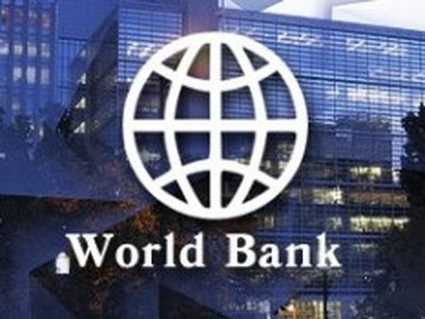Even as the coronavirus continues to spread, the World Bank estimates that, between 2019 and 2020, the global economy will shrink by $4.2 trillion dollars.
The COVID-19 pandemic is uncharted territory for every country in the world. It has unleashed both a global health emergency and an unprecedented economic crisis of historic magnitude
In a position paper titled Broad, Fast Action to Save Lives and Help Countries Rebuild, Axel van Trotsenburg, the World Bank Managing Director of Operations said the above amount is substantially bigger than South Asia’s entire regional economy (which is about $3.5 trillion).
According to him, millions of lives in the poorest countries are on the precipice, as the contagion they face isn’t just the virus, as devastating as that will be, but it’s travelling companions of poverty, deprivation, even starvation.
“Without strong health care systems to break the stride of the disease-and with debt-laden economies suddenly starved of trade, remittances, investment, and jobs-it is only through global solidarity on an unprecedented scale that can we prevent a humanitarian catastrophe, and decades of progress against extreme poverty dissolving in front of our eyes.
“The World Bank Group is committed to doing everything we can to help countries respond to the health emergency, contain the economic damage wherever possible and start planning for their long-term recovery. We have set up fast-track financing for COVID-19 response efforts and have these underway already in over 60 client countries,” he stated.
The World Bank’s response he added is targeted in four key areas: First, “we are focused on saving lives by helping client countries implement emergency health operations.
“Second, we are helping countries protect the poorest and most vulnerable. We are helping our clients expand the reach of social protection, both through new programs in response to the pandemic and a massive scale-up of existing programs, many of which have served far too few people to be sufficient for the current crisis. Africa also has well over 100 million people who are chronically on the verge of hunger; globally, the number of people facing acute food insecurity is likely to double by the end of the year.
“Third, we are working to save jobs and businesses. Due to the impacts of the COVID-19 crisis, four out of five people in the global workforce of 3.3 billion are currently affected by full or partial workplace closures. Nearly 80 per cent of the world’s informal economy workers, 1.6 billion people have faced severe constraints to earning a living as a result of COVID-19 lockdowns and their involvement in hard-hit industries.
“Fourth, we are building a more resilient recovery. Even as we help countries address immediate needs, we’re looking at how we can support policy reforms to facilitate faster, more resilient, and more equitable growth when the health crisis subsides,” Trotsenburg noted.
The pandemic has already stalled or reversed growth around the world, and it’s likely to push 40 million to 60 million people into extreme poverty. After decades of rapid improvement in living standards, the number of people falling into extreme poverty because of COVID-19 will be equivalent to the entire population of Colombia or Kenya, perhaps more, he further established.
YOU SHOULD NOT MISS THESE HEADLINES FROM NIGERIAN TRIBUNE
Buy and read digital replicas of your TRIBUNE titles by subscribing through E-VENDING
Lagos Will Not Hesitate To Review Easing Of Lockdown If… ― Sanwo-Olu
Lagos State governor, Mr Babajide Sanwo-Olu, on Saturday warned that the state government will not hesitate to review the terms of easing of lockdown currently in operation if it continues to see evidence that Lagosians are determined to flout the rules… Read full story






